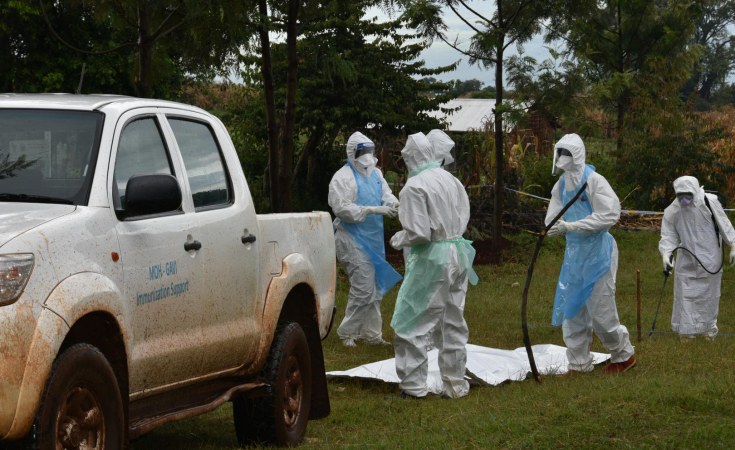Rwanda says at least eight people have died so far from the highly contagious, Ebola-like Marburg virus, just days after the country declared an outbreak of the hemorrhagic fever that has no authorised vaccine or treatment.
Like Ebola, the Marburg virus originates in fruit bats and spreads between people through close contact with the bodily fluids of infected individuals or with surfaces, such as contaminated bed sheets.
Without treatment, Marburg can be fatal in up to 88 percent of people who fall ill with the disease.
Rwanda officially declared an outbreak of the disease on Friday and a day later the first six deaths were reported.
Speaking on Sunday evening, Health Minister Sabin Nsanzimana said 26 cases have been confirmed so far, and eight of those infected have died.
To display this content from X (Twitter), you must enable advertisement tracking and audience measurement.
Accept Manage my choices Contact tracing in place
The public has been urged to avoid physical contact to help curb the spread of the disease.
Some 300 people who came into contact with those confirmed to have contracted the virus have also been identified, and an unspecified number of them have been put in isolation facilities.
Most of those affected are healthcare workers across six out of 30 districts in the country.
"Marburg is a rare disease," Nsanzimana told journalists. "We are intensifying contact tracing and testing to help stop the spread."
The Minister said the source of the disease has not yet been determined.
Equatorial Guinea confirms Marburg deaths after push by WHO
WHO steps up support
A person infected with the virus can take between three days and three weeks to show symptoms, he added.
Symptoms include fever, muscle pains, diarrhoea, vomiting and, in some cases, death through extreme blood loss.
The World Health Organization has said it is scaling up its support and will work with Rwandan authorities to help stop the spread.
In the past, Marburg outbreaks and individual cases have been recorded in Tanzania, Equatorial Guinea, Angola, Congo, Kenya, South Africa, Uganda and Ghana.
The rare virus was first identified in 1967 after it caused simultaneous outbreaks of disease in laboratories in Marburg, Germany, and Belgrade, Serbia.
Seven people who were exposed to the virus died while conducting research on monkeys.
Mpox still at large
Separately, Rwanda has so far reported six cases of mpox, a disease caused by a virus related to smallpox but that typically causes milder symptoms.
Mpox - previously known as monkeypox because it was first discovered in research monkeys - has also affected several other African countries in what the WHO has declared a global health emergency.
Why the latest mpox outbreak has global health authorities so alarmed
Rwanda launched an mpox vaccination campaign earlier this month, and more vaccines are expected to arrive in the country.
Neighboring Democratic Republic of Congo has so far reported the most cases of mpox and has been identified as the epicentre of the emergency.
(With wires)


